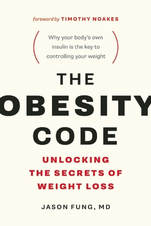|
I’m really excited to have been able to invest in Respirix. Based in San Francisco, Respirix is a healthcare company on a mission to revolutionize cardiac monitoring. Respirix is developing a novel approach using software and hardware to measure hemodynamic parameters (that currently require expensive and invasive implants) at low cost and non-invasively. The technology has wide potential, but they are initially focused on bringing a game-changing monitor for congestive heart failure (CHF) patients to market that will allow their physicians to monitor them remotely and help prevent dangerous and expensive hospitalizations.
Heart disease is something I personally care about because it’s impacted my family directly in the past: several of my grandparents and pets died from heart disease (and some specifically CHF). Now, there are many companies chasing heart failure -- it is a very big market. Every year in the United States, about one million CHF patients are hospitalized for what is called “decompensation” (fluid retention in the body and lungs); the estimated cost of these hospitalizations in the U.S. for 2010 was $39.2 billion, and that number is forecasted to reach $70 billion by 2030. Importantly, over 50% of CHF patients are readmitted to the hospital within 6 months of discharge. Today, there is only one FDA-approved device for CHF patients to monitor their status at home. It’s an implant that costs $18,000 and gets placed permanently inside the pulmonary artery in the heart through a surgical procedure. Despite these challenges, this technology was acquired for $455 million before selling a single device when it was demonstrated that the daily measurements it provided could predict decompensation in advance and allowed physicians to have patients take medication that reduced CHF hospitalizations by 38% in a 470 patient trial. Now, imagine that instead of having a chip placed inside your heart for life, you simply had to breathe into a sensor and get the same analysis of your condition. Sounds amazing, right? That is precisely what Respirix is doing. Respirix’s approach involves using precise analysis of breath exhalation (proprietary signal along with machine learning) to monitor changes in pressure caused by the pulmonary vasculature, which may be a more sensitive indication of pulmonary artery compliance. So far, the Respirix team has accomplished a number of important milestones, including building over twenty of their Cardiospire devices, acquiring animal model data, starting multiple clinical trials, winning grants, and recruiting a strong team and advisors. If successful, Respirix’s first product would make it a lot less invasive and easier for CHF patients to have their health monitored at home. I know startup risks are large and the probability of success is generally low, but Respirix has a differentiated approach and has gotten very solid results to date, and they are tackling a huge market opportunity. That being said, I like that the CEO has a lot of personal skin in the game and cares passionately about seeing the Respirix solution become reality. I’m proud to have invested alongside Synergy Ventures, Signatures Capital, Theranova, and StartX. I’m personally excited about the company because given my family history, I recognize that there is a strong need for new technologies to treat heart disease more effectively, at lower cost, and with increased patient access. What I love:
Risks:
0 Comments
I’m really excited to have been able to invest in Contraline. Based in Charlottesville, Virginia, Contraline is a medical device company developing the first long-lasting, non-hormonal, and reversible male contraceptive.
The company was started by a founder (fellow immigrant!) who is passionate about giving men more options and responsibility in contraception. He wrote essays to get into college about the lack of a male birth control pill and has been working tirelessly to recruit a strong team of scientists with an actual lab and tangible progress towards clinical trials. If successful, the product would be game-changing, and I acknowledge the risks are very large and probability of success low. I like that the founder is so committed to seeing his vision turn into reality. I’m proud to have invested alongside Jason Calacanis, Mike Savino, LAUNCH, Founders Fund, FundRx, and Abstract Ventures. I’m personally excited about the company because the options for men are indeed very limited (either not very effective or permanent and painful). 73% of couples in the world rely on female partners for contraception. I believe the societal and social impact from giving men more options and responsibility would greatly benefit gender relations and couple dynamics overall. And I like that there are defensible scientific advances at the core of this technology that have the chance to be executed upon by a good team. Couples and physicians can register their interest in Contraline here: http://www.contraline.com/participate Here is recent press coverage on the company: TechCrunch, WMRA What I love:
Risks:
 I heard about the book The Obesity Code: Unlocking the Secrets of Weight Loss by Dr. Jason Fung from my wife, who heard about it from her doctor friends. She insisted I read it, and I did it almost as a favor to her (I wasn't as interested in the subject matter). She wanted to talk about the content with me, and I thought I'd quickly get through it, and that would be that. I didn't even open up a Google doc to take notes on it because I initially didn't care. But about halfway through chapter 1, realized I couldn't not take notes. I was learning so much and enjoying the book so much that I had to take notes. I had gotten some sense for the book's conclusions from other things I've read (like Tim Ferriss's books and podcast that have discussed the same solutions like intermittent fasting, slow carb, etc.), so it wasn't like the subject was brand new to me. It's just that it was explained so clearly and hooked me so well with its writing that I ended up learning a lot more than I expected. And most importantly, I'm actually making changes based on what I learned. Thankfully I'm not overweight, but I still want to eat healthy and avoid doing things that can harm my health in the long run. That's actually a question I was hoping the author would answer but didn't in this book: which of the lessons/guidelines should be adopted by non-overweight people just as a matter of healthy living? The book was written by a doctor and is evidence-based, citing only legitimate human studies (no animal studies). It debunks a lot of the commonly held beliefs around dieting and normal nutrition advice (like from the American Heart Association or the government's food pyramid). I love how the book starts off with a poignant question: Why are there fat doctors? Maybe because even many doctors have been fooled into believing the wrong thing (that gaining weight is about temptation control and the right diet as opposed to the truth: it's really about hormones, and eating more naturally and less frequently can solve a lot of problems people have). My biggest takeaways: Problem: Insulin Solutions: Intermittent fasting 3 meals per day, no snacks Removing fructose and artificial sweeteners Stress management and sleep to lower cortisol Stop sugary drinks, juices, snacking Eat fiber if eating carbs Full notes below. |
Archives
June 2024
Categories
All
Subscribe |


 RSS Feed
RSS Feed
